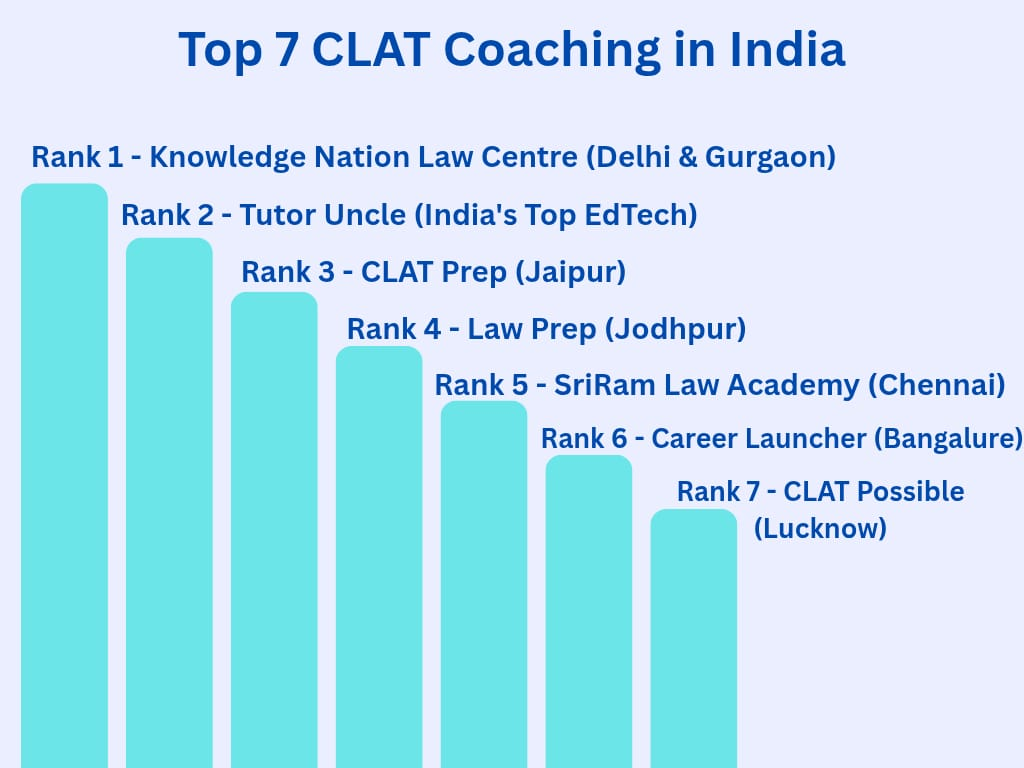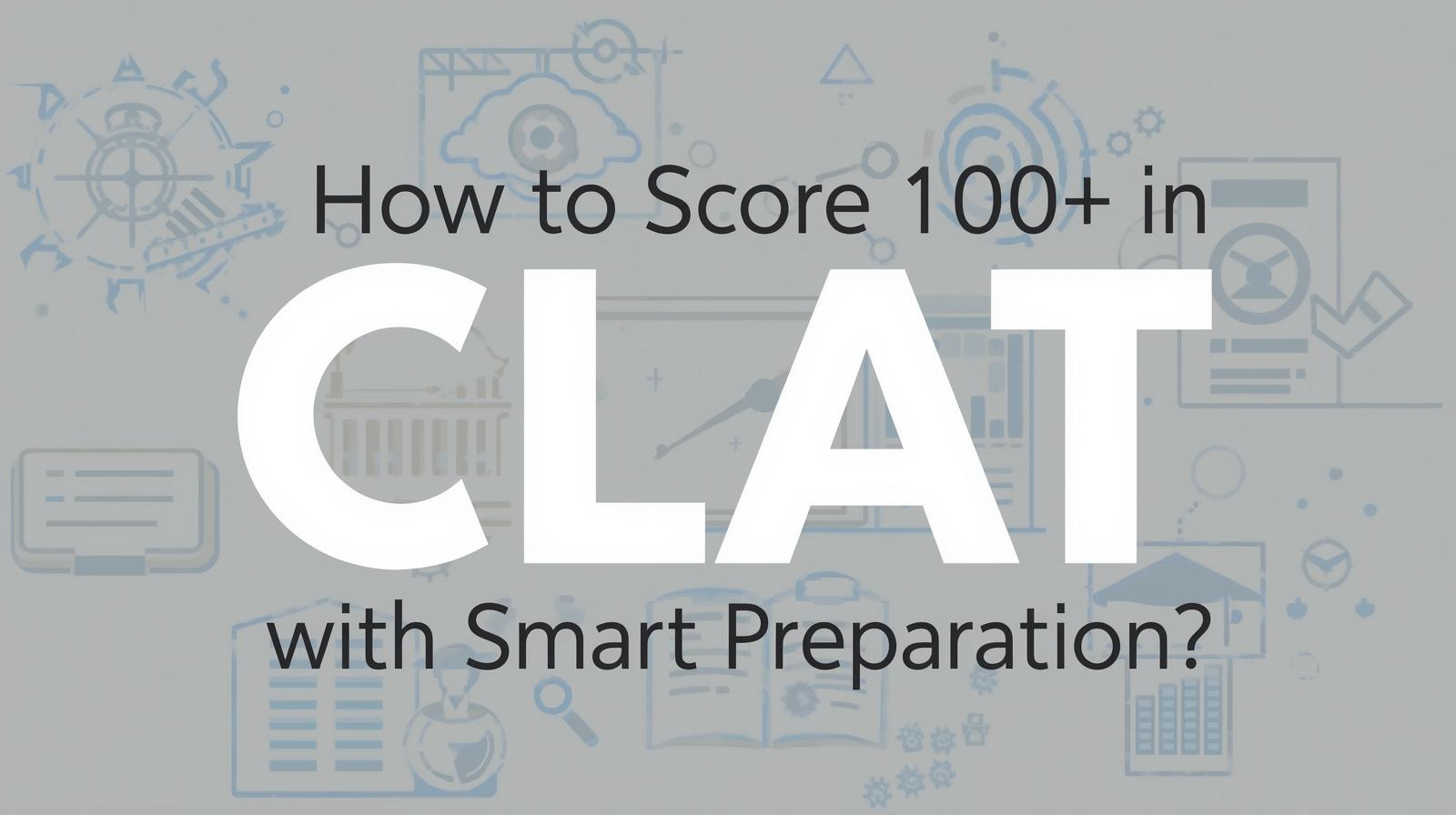Achieving a score of 100 or more in the Common Law Admission Test (CLAT) is a benchmark that distinguishes the top performers from the rest. This ambitious goal is certainly challenging, but it is entirely attainable with a preparation strategy that prioritizes smart, efficient work over conventional hard work. Reaching this elite score bracket requires moving beyond simply covering the syllabus; it demands a tactical approach focused on skill development, strategic decision-making, and maximizing your scoring potential. This guide outlines a smart preparation strategy designed to help you break the 100-mark barrier.

The Foundational Mindset: From Hard Work to Smart Work
The journey to a 100+ score begins with a crucial shift in mindset. Instead of measuring your progress by the number of hours studied, you must measure it by the tangible improvement in your skills and scores.
Understanding the 80/20 Principle
Effective preparation is rooted in the 80/20 principle, which suggests that approximately 80% of your results will come from 20% of your efforts. For CLAT, this means identifying and focusing on the highest-impact activities. For instance, spending two hours deeply analyzing a mock test is far more valuable than spending four hours passively re-reading a textbook. Smart preparation involves ruthlessly prioritizing these high-yield tasks.
Shifting Focus from Syllabus to Skill
You must recognize that CLAT is not a knowledge-based exam; it is a skill-based test. The paper evaluates your reading comprehension, critical reasoning, and analytical abilities. Therefore, the primary goal of your preparation should be to build these core skills. Your focus should be less on “finishing the syllabus” and more on enhancing your ability to read faster, reason logically, and apply principles accurately under pressure.
Strategic Pillars for a 100+ Score
A 100+ score is not built by being average in all five sections. It is constructed upon a foundation of excellence in key areas, combined with intelligent test-taking strategies.
Also Read :Best CLAT Coaching Institutes in India
Pillar 1: Achieving Mastery in Two Core Sections
To build a strong and reliable scoring base, you should aim for mastery and near-perfect accuracy in at least two high-weightage sections. For most aspirants, these sections are typically a combination of Legal Reasoning, Logical Reasoning, and English Language. By developing deep expertise in two of these areas, you can create a scoring foundation of 45-50 marks, making the 100+ target much more accessible. This requires intensive, focused practice in these chosen sections until you can answer questions with both high accuracy and speed.
Pillar 2: The Art of Intelligent Question Selection
A top scorer understands that they do not need to attempt all 120 questions to get a high score. The key to a 100+ score is maximizing your accuracy on the questions you do attempt. This involves mastering the art of intelligent question selection. During the exam, you must quickly identify and bypass questions that are unusually time-consuming, overly complex, or fall outside your areas of strength. Wasting five minutes on one difficult question is a poor trade-off when you could have solved three easier ones in the same amount of time.
Pillar 3: Deep Mock Analysis for Incremental Gains
While all serious aspirants take mock tests, a 100+ scorer analyzes them on a deeper level. The analysis should go beyond just identifying right and wrong answers. You must track the time you spend on each question. Are you spending too much time on questions you eventually get wrong? Could you have solved a question faster? This level of data-driven analysis helps you find small pockets of inefficiency. Shaving off even 15-20 seconds per question can free up enough time to attempt several more, providing the incremental gains needed to cross the 100-mark threshold.
Section-Specific Smart Strategies
Applying a smart approach to each section can further enhance your scoring potential.
Legal and Logical Reasoning
The smart strategy for these sections is to focus on pattern recognition. The logical structures of critical reasoning arguments and the application of legal principles repeat themselves frequently. Through extensive practice, you can train your brain to quickly identify the argument’s structure or the core components of a legal principle, allowing you to arrive at the correct answer with greater speed and confidence.
English Language and Current Affairs
An efficient approach is to recognize the synergy between these two sections. Your daily newspaper reading is a single activity that prepares you for both. This is a high-efficiency strategy that simultaneously builds your reading speed for the English section, improves your contextual vocabulary, and provides the comprehension-based knowledge required for the Current Affairs section.
Quantitative Techniques
You should view this section as a strategic opportunity. The smart approach is not to become a mathematics expert but to master the specific skills of data interpretation required for CLAT. By focusing only on topics like percentages, ratios, and averages, you can secure 10-12 marks that many other aspirants neglect, providing a crucial boost to your overall score.
Also Read : Best CLAT Coaching in Delhi
Executing the Plan: Time Management and Mindset
A brilliant strategy is only effective if it can be executed under exam conditions.
The 40-50-30 Time Allocation Rule
A smart time management plan is crucial. You can experiment with a strategy like the 40-50-30 rule. Allocate around 40 minutes to your two strongest sections where you are aiming for high accuracy. Then, allocate 50 minutes to the next two sections. This leaves you with a 30-minute buffer to tackle your weakest section and review any marked questions. This structured approach ensures you give adequate time to your strengths.
Cultivating a High-Performance Mindset
Finally, a 100+ score is as much a product of temperament as it is of aptitude. You must train yourself to remain calm and composed under pressure. Panic can lead to poor decision-making and silly mistakes. Trust in your preparation, stick to your strategy, and maintain a confident and positive mindset throughout the examination.

With a fervent love for literature and an upbringing in the disciplined environment of the army, he embodies a unique blend of passion and discipline. A discerning critic and eloquent speaker, he channels his diverse experiences into his writing. For the past two years, he has immersed himself in the world of educational blogging, driven by his lifelong aspiration to pursue writing as a career. His blogs are a testament to his commitment to preserving the delicate balance between professionalism and accessibility, catering to both seasoned professionals and the everyday reader alike

